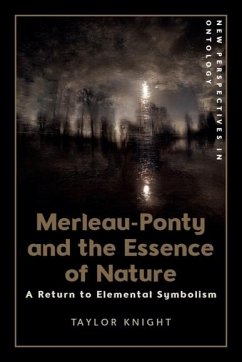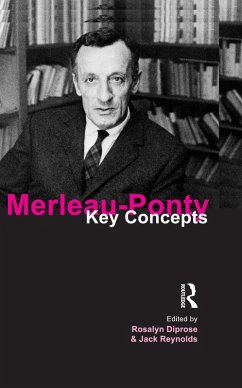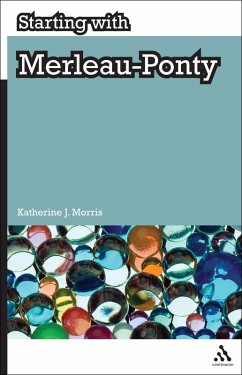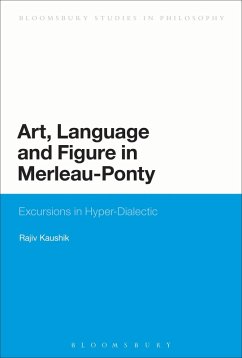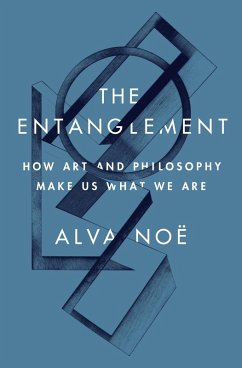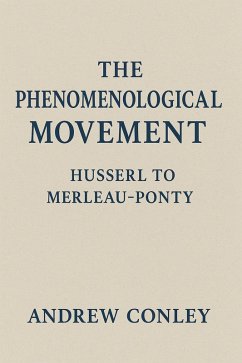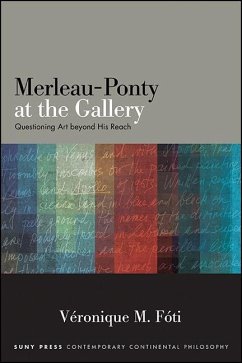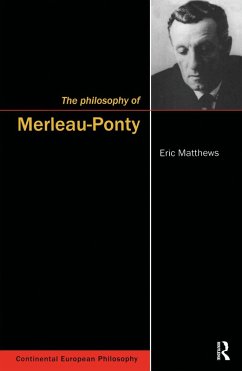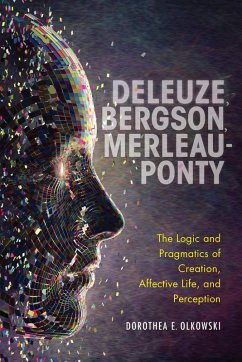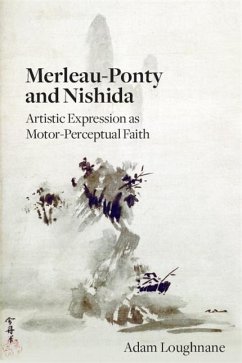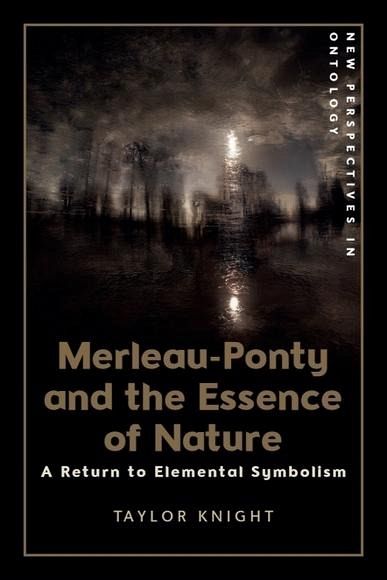
Merleau-Ponty and the Essence of Nature (eBook, ePUB)
A Return to Elemental Symbolism
Versandkostenfrei!
Sofort per Download lieferbar
65,95 €
inkl. MwSt.
Weitere Ausgaben:

PAYBACK Punkte
33 °P sammeln!
Taylor Knight reveals the way in which phenomenology initiates a return to ontology construed through a dialectical relationship between being and element. Within phenomenology's return to the elemental, Merleau-Ponty's late philosophy is a key locus, opening critical paths forward into an ontology for the ecological age. With reference to his phenomenological forebears - Heidegger, Husserl, Levinas - his non-phenomenological influences - Bachelard, Schelling, Freud - and his dialogue with Greek thought - Heraclitus, Plato, Aristotle - Knight shows what is authentically new in Merleau-Ponty's ...
Taylor Knight reveals the way in which phenomenology initiates a return to ontology construed through a dialectical relationship between being and element. Within phenomenology's return to the elemental, Merleau-Ponty's late philosophy is a key locus, opening critical paths forward into an ontology for the ecological age. With reference to his phenomenological forebears - Heidegger, Husserl, Levinas - his non-phenomenological influences - Bachelard, Schelling, Freud - and his dialogue with Greek thought - Heraclitus, Plato, Aristotle - Knight shows what is authentically new in Merleau-Ponty's late ontology.
Dieser Download kann aus rechtlichen Gründen nur mit Rechnungsadresse in A, B, BG, CY, CZ, D, DK, EW, E, FIN, F, GR, HR, H, IRL, I, LT, L, LR, M, NL, PL, P, R, S, SLO, SK ausgeliefert werden.




